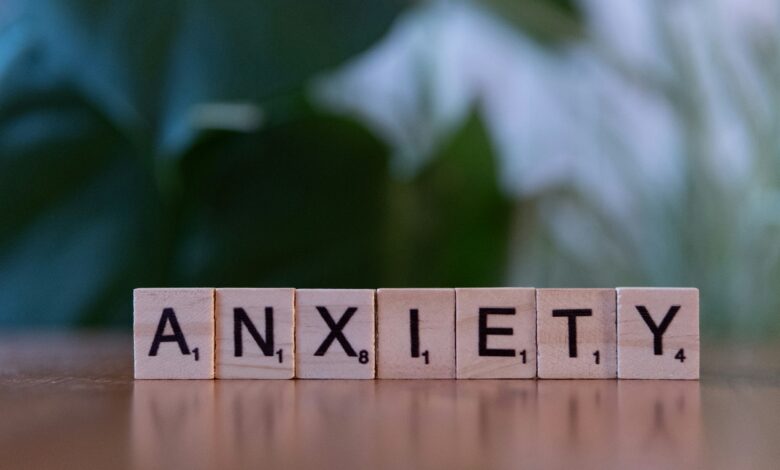Is My Anxiety Typical or Do I Need Professional Support?

Life is filled with inevitable challenges and uncertainties, leading many to experience occasional worries. These concerns often revolve around common themes such as health, finances, or relationships, and usually dissipate as the circumstances causing them change or are resolved. For instance, you might worry about a job interview, but once the interview is over, the worry subsides. However, in a world where stressors seem to be ever-increasing, discerning when worries are a natural reaction to life’s hurdles or when they indicate something more significant becomes crucial. If these worries linger and intensify without a discernible external trigger, this might prompt individuals to consider how to know if you need therapy to better cope with these feelings.
It’s important to understand that while situational stress typically manifests through transient anxieties that are context-specific, chronic anxiety might not have an obvious cause and can be overwhelming. Persistent worry can indicate various different types of anxiety, such as generalized anxiety disorder (GAD) or panic disorder, each presenting unique challenges to those affected. Recognizing these differences is the first step in addressing whether intervention is necessary.
Signs Your Worries Might Be More Than Just Worries
The thin line between everyday worries and more profound anxiety disorders can often be blurred and difficult to navigate. Typical indicators that signify a more serious issue include feeling overwhelmed by worry on most days, experiencing muscle tension, disruptions in sleep like insomnia, and inability to concentrate on tasks at hand. People may also notice physical symptoms such as headaches or stomach issues directly linked to their mental state. It’s not uncommon for those experiencing chronic worry to find their social lives impacted as well, avoiding activities they once enjoyed. When these signs become apparent, it might be time to reassess and potentially seek outside help.
Real-life examples can be illuminating. Consider an individual who avoids taking public transportation due to overwhelming fears of crowded places; these actions limit where they can go or whom they visit, marking a shift from typical concern to life-restricting anxiety. Noticing patterns and their impact can serve as a wake-up call to explore therapeutic support options.
When to Seek Help?
Knowing when to transition from self-help to professional support can be a pivotal moment in one’s mental health journey. Begin by assessing the frequency and persistence of your worries. Are they fleeting thoughts or ever-present burdens? Also, evaluate their impact: Are these worries diminishing your quality of life? Significant stress often brings along symptoms of anxiety or depression by altering daily functioning and relationships. If your efforts to manage these worries solo have been unsuccessful, professional intervention might be the next logical step.
Understanding the signs you should see a therapist can demystify the process of getting help and encourage timely action. Often, reaching out to a therapist isn’t just about addressing immediate concerns but also about learning lifelong skills to manage future stressors effectively.
Benefits of Professional Support
Therapy can transform lives by offering individuals tools and strategies to combat anxiety and secure mental peace. Professional support provides a structured environment to explore thoughts and behaviors, uncovering patterns that may have gone unnoticed. Consider cognitive-behavioral therapy (CBT), a common approach that helps people determine and alter negative thought patterns and behaviors. Therapists work alongside clients to develop personalized coping mechanisms, equipping them to handle anxiety-inducing situations independently.
Furthermore, therapy can introduce mindfulness-based approaches that focus on maintaining present-moment awareness, thereby reducing stress. Engaging with a therapist not only offers relief but also enables people to reclaim their lives with newfound confidence.
DIY Strategies to Manage Worry
While professional guidance is invaluable, there are numerous strategies individuals can employ independently to manage worry. Mindfulness exercises, like meditation or yoga, promote relaxation and can significantly decrease anxiety levels. These habits encourage individuals to focus on the present, thus diverting attention from uncontrollable future events or past regrets.
Breathing exercises, easily practiced in any setting, can instantly alleviate stress and reduce physiological responses to anxiety. Incorporating such activities into daily routines enables individuals to establish mental clarity and reduce emotional turmoil, potentially curbing the insidious cycle of chronic worry.
The Role of Lifestyle in Managing Worries
Our daily habits significantly influence how effectively we manage stress. A wholesome lifestyle—encompassing a balanced diet, ample sleep, and regular exercise—plays a critical role in stabilizing mood and reducing anxiety. Physical activity is especially effective as it releases endorphins, chemicals in the brain that act as natural mood elevators, which can counterbalance stress hormones.
Nutritional balance is equally critical; a diet packed with omega-3 fatty acids, antioxidants, and vitamins can boost mental health. Equally, ensuring seven to nine hours of restful sleep per night can significantly enhance one’s resilience to stress. Building a supportive lifestyle framework is integral to maintaining long-term mental health.
Community and Support Networks
The journey through stress and anxiety need not be a solitary path. Sharing experiences with friends or a broader support network can offer solace and perspective. Engaging with community groups, whether online forums or local meet-ups, can provide comfort in realizing you are not alone in your struggles.
These networks offer a stage for shared stories and coping strategies, often helping to lift the veil of stigma surrounding mental health discussions. Knowing that others understand your challenges can be immensely reassuring and can foster a sense of belonging, which is crucial for holistic well-being.



